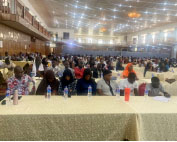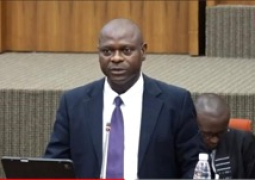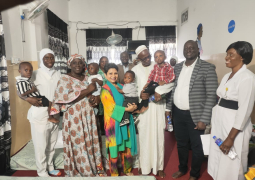
The training, officials said, is meant to equip the participants with the requisite knowledge with a view to enabling them successfully conduct the data collection exercise.
The data collection exercise is expected to be held in the Kanifing Municipality and Banjul.
Speaking at the occasion, Nyakassi M.B. Sanyang, the Statistician General at GBoS said this exercise would be the fourth and final phase of the social registry and data collection exercise.
The first phase of the exercise, he said, was conducted in 2020 and covered 30 districts in URR, CRR, LRR, Foni and one district in NBR which is Sabach Sanjal, saying: “The second phase of the exercise covered the remaining six districts of NBR. The third phase was held in 2023 and it covered the West Coast Region. Therefore, we now want to do the remaining local government areas of the country in order to have a full coverage.”
The exercise, Sanyang went on, is meant to build the Gambia Social Registry (GAMSR).
He added: “The purpose of building the GAMSR is to consolidate it into a single common database, key information about current and potential beneficiaries of social programmes in order to create a single-entry point for the main social protection programmes to access information about potential beneficiaries.”
The GBoS Statistician General recalled that in February 2016, the Gambia government approved the National Social Protection Policy (NSPP).
The policy, he continued, defines a comprehensive and cross-cutting social protection agenda and proposes a set of priority actions in order to guide the gradual establishment of an integrated and equitable social protection system in The Gambia.
“The NSPP is accompanied by a Social Protection Implementation Plan, which defines a set of activities to guide the implementation of the policy across four results areas/goals.”
“The GAMSR database shall comprise households' demographic and socio-economic data. Therefore, based on this information, different social programmes can apply their own inclusion criteria to screen potential eligible beneficiaries.”
“Again, it shall among other things, support in facilitating rapid identification of beneficiaries for programmes that are scaling up or trying to create synergies with complementary interventions in order to enhance their impact, and have the capability to be linked to other databases when these databases become automated.”
This exercise, the GBoS boss said, is very “critical and that GBoS will not in any way compromise its integrity and will ensure that all necessary precautions and preconditions are put in place to protect our integrity.”
Sering Falu Njie, Development Adviser at the Office of the Vice President and also the Chairman of the National Statistics Council, said: “The data which participants are going to collect and the analysis that will come out of it, will form the basis for the identification and targeting of members of society who will and who will not be eligible for support under the National
Read Other Articles In National News
Auditor uncovers financial irregularities at BCC
Mar 14, 2025, 12:04 PM




